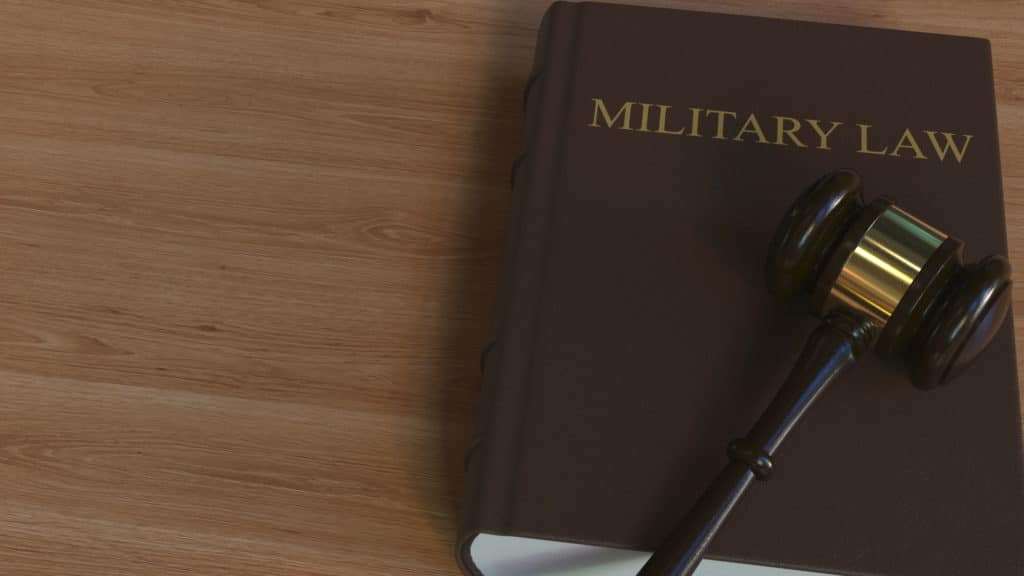Article 134 of the Uniform Code of Military Justice creates three different types of criminal offenses. First, it criminalizes “disorders and neglects” that are prejudicial to good order and discipline in the armed forces. Second, it criminalizes conduct of a nature to bring discredit upon the armed forces. Third, it allows the prosecution of existing federal laws in military courts through the Federal Assimilative Crimes Act.
The second category, service discrediting offenses, has been the subject of numerous appellate decisions attempting to clarify the evidence needed for a conviction. The difficulty in these types of offenses is that Article 134 does not just criminalize conduct that does bring discredit to the armed forces, but also conduct “of a nature” to bring such discredit. This means that even when the Government does not have a witness who testifies that they now think less of the armed forces because of the accused’s conduct, the Government can still satisfy this element of the offense.
The Government cannot just rely on the conduct itself to prove this service discrediting element, though. The prosecution cannot just prove certain conduct, like possessing illicit digital material, or engaging a prostitute, and argue that this conduct is automatically service discrediting. The Court of Appeals for the Armed Forces (CAAF) has held there cannot be a conclusive presumption that any conduct is service discrediting. The factfinder still has to evaluate the facts and circumstances of the specific conduct in question and decide whether or not it is of a nature to bring discredit upon the armed forces.
The CAAF recently decided another case on this topic, United States v. Wells. Airman Wells had been having an extramarital relationship with BF for several months. They dated, they spent time at his house, she met his parents. When BF learned that Airman Wells was not actually in the process of divorcing his wife, she reported the relationship to his command. Airman Wells showed others intimate videos of he and BF and even posted one on a public website. Their relationship was neither private nor discreet. BF testified at trial that her extramarital relationship with Airman Wells did not make her think less of the Air Force. Airman Wells was convicted of, among other things, extramarital sexual conduct. This offense was charged under Article 134 and was alleged to have been of a nature to bring discredit upon the armed forces.
On appeal, Airman Wells argued that BF’s testimony that she did not think less of the Air Force meant that the Government had not proven the service discredit element of the offense. The CAAF pointed to the open and notorious nature of the relationship to show that the facts and circumstances of this affair was of a nature to discredit the armed forces. BF’s opinion was hers alone and did not determine whether the conduct was of a nature to bring discredit. The CAAF also reaffirmed the constitutionality of service discrediting offenses. So long as factfinders look at the specific facts and circumstances of the conduct at issue in a case and do not presume certain conduct to be service discrediting, it is constitutional.
If you or your loved one is facing a court-martial or wants to appeal a court-martial conviction, you need someone with experience who knows the law. I have the experience you need. Please call Bill Cassara at (706) 445-2943 for a free consultation.

